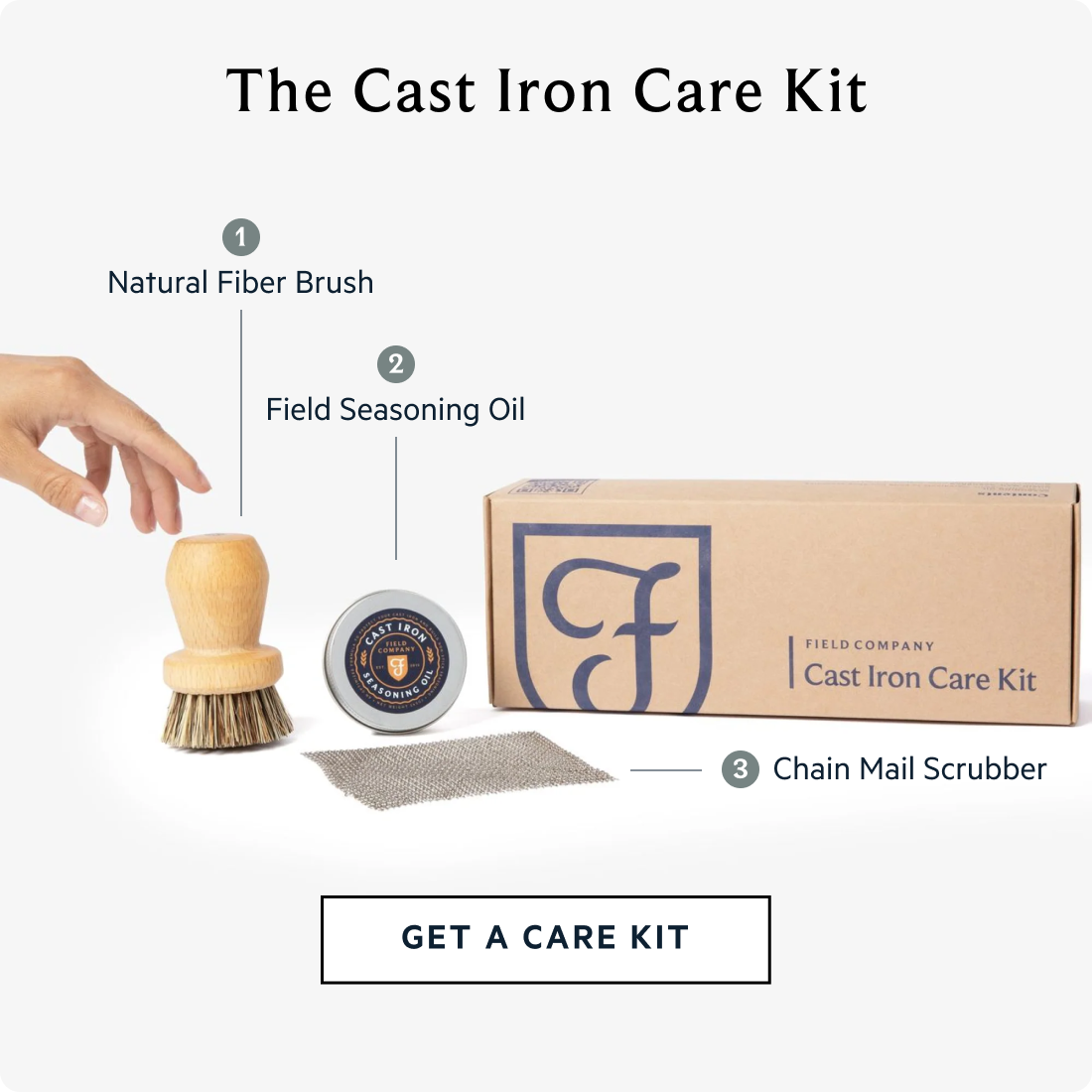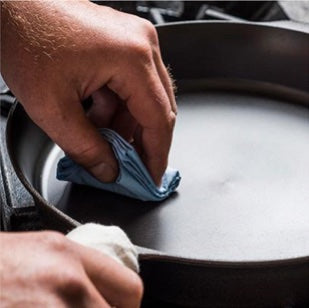Certain cast iron dos and don'ts get handed down from cook to cook, much like heirloom skillets themselves. DO: fry eggs, bake cornbread, and roast vegetables! The don’t side is a bit more complicated. Definitely don’t leave your skillet wet or clean it in the dishwasher. But rules like “don’t cook with tomatoes” have exceptions, and “don’t use soap!” is a cast iron myth we’re ready to retire altogether.

Vintage Pans, Old-School Rules
The idea that cast iron and soap don’t mix dates to the days when household soaps and cleaning agents included harsh active ingredients like vinegar and lye. These old-fashioned soaps were avoided for good reason: acids like vinegar can strip seasoning, and lye-based products can damage both seasoning and the underlying iron.
Today, most dish soaps don’t contain harmful, abrasive ingredients and are perfectly safe for use with cast iron cookware and just about everything else in your kitchen. These modern soaps can be classified as de-greasers: they’re designed to cut through tough, greasy stains, making it easy to remove lingering food residue. If you have stubborn or strong-flavored residue on your skillet, a hit of soap will help.
So, it’s fine to soap up your skillet! Here are a few tips on when to lather up:
Washing Cast Iron with Soap
A Fresh Start
When your Field Skillet arrives, we recommend giving it a brief scrub under soap and warm water. This is a good idea for any new cookware, and it’s the only time when using soap is a must. A quick wash is also a good idea if your skillet has been in storage, or collecting dust for a bit.
Sweet to Savory
A quick rinse or wipe out with a paper towel can allow flavors from last night’s dinner to linger in your pan. This is known as flavor migration, and a proper cleaning with sturdy brush and chain mail scrubber (both part of the Cast Iron Care Kit) will take care of food residue and flavors.
But certain dishes are more stubborn: spicy sauces, seafood, and sweet desserts can carry over to the next meal. (That’s why some bakers keep separate skillets for sweet and savory cooking.) After searing salmon, soap up to banish any briny notes you wouldn’t want mingling with tomorrow’s bacon.
Oil up
Today’s degreasing dish soaps will do just that: eliminate oils on your skillet. But a dry pan is not a happy pan — after cleaning with soap, it’s especially important to dry thoroughly and oil up to protect the cooking surface. We recommend a dab of Field Seasoning Oil.
Cleaning Cast Iron: The Field Method
The key to reliable cast iron cookware is seasoning: a well-seasoned skillet will deliver non-stick performance and clean up with just a quick wash — with or without soap. Apply a dab of Field Seasoning Oil after cleaning to protect your skillet and build durable non-stick seasoning.



